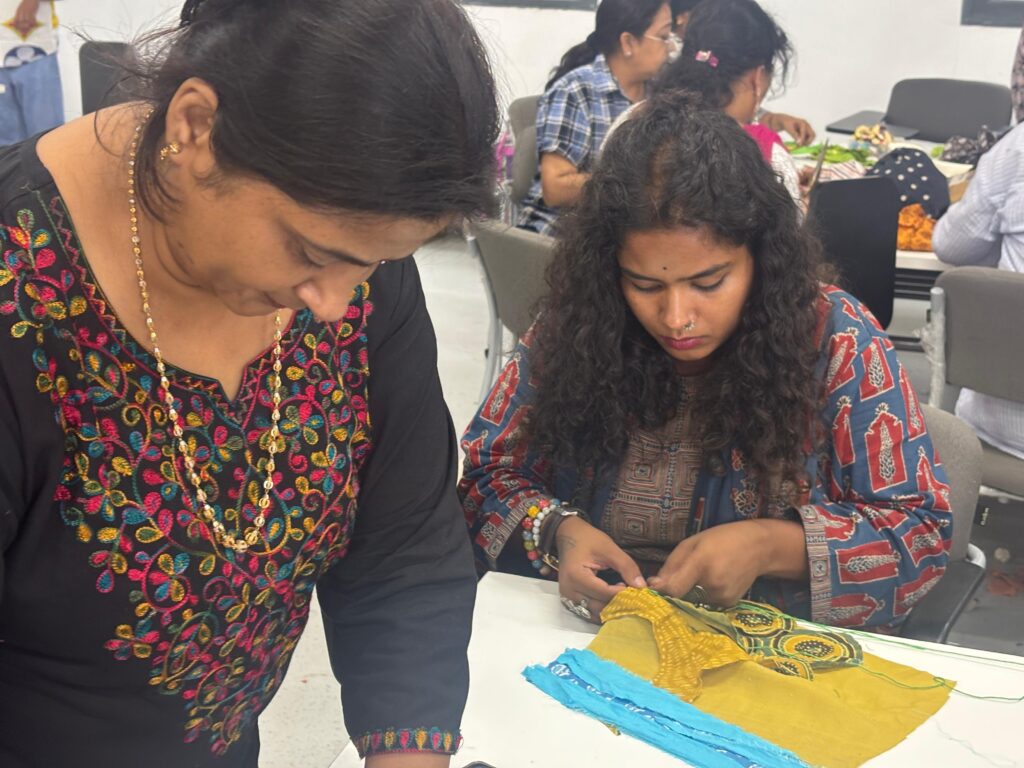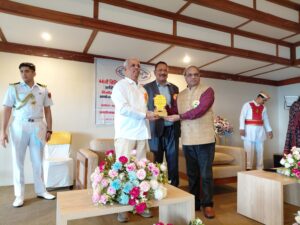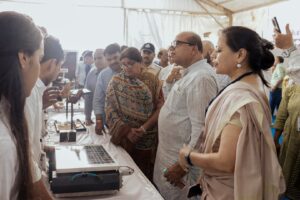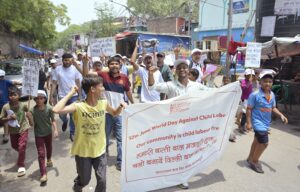
On the second day of the three-day residential workshop “Green Impressions” at Azim Premji University, Bhopal on 3 June, participating art educators were invited to artistically portray environmental pollution caused by polythene, drawing inspiration from the visual motifs and symbols of renowned artist S.H. Raza.
The results were thoughtful and visually striking: one depicted the deteriorating state of the Khan River in Indore, another reflected concerns about Bhopal’s iconic Upper Lake. Using plastic waste wrappers, each participant created an 8”x8” composition, symbolizing the growing imbalance in nature and the environment.
Organized by the National Centre for Human Settlements and Environment (NCHSE), Child Rights Observatory Madhya Pradesh (CROMP), and the Art-Design Teachers’ Forum with support from Azim Premji University, Bhopal, the workshop brings together over 30 selected art teachers from different districts of Madhya Pradesh. The core intent of this workshop is to cultivate ecological understanding and sensitivity through the medium of art.
Earlier in the day, participants performed a group song on environmental themes, accompanied by self-made musical instruments created from waste materials. Though not perfectly tuned, the instruments resonated with a powerful message of environmental awareness.
Lokendra Jatthapi, a teacher from Indore, demonstrated the meditative art of stone balancing, where sharp-edged stones are balanced delicately on smooth ones. “Every stone can find balance,” he shared, “but it requires concentration and faith.”
Anupama Dumane conducted a session on making jewelry from waste fabric and scraps. Participants eagerly created a variety of ornaments using discarded textile materials.
Workshop facilitator Indu Harikumar concluded the day with a creative challenge: participants were asked to craft 10”x10” textile art pieces using old fabric and scraps around the themes of earth, forest, and water. These individual fabric squares will be stitched together into four large quilt-like creations — vibrant, collective expressions of environmental storytelling.
The workshop will conclude tomorrow on 4 June with a closing ceremony and the distribution of certificates to all participants.





